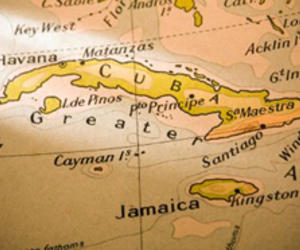Temperature in Cuba Rises Almost 1 Degree Celsius
- Submitted by: manso
- Society
- 08 / 16 / 2011

The average annual temperature in Cuba rose approximately 0.9 degrees Celsius from 1951 to date, said Ramon Perez, head of the Climate Center at the National Meteorology Institute.
Interviewed on a Monday morning television program, the scientist said that the largest increase in the last 70 years was in winter temperatures, and was about 1.4 degrees Celsius above previous records.
About summer temperatures in Cuba, Perez said July and August continue to be the hottest months of the year, and that human beings are going all out to adapt to the environment.
Among the factors for higher temperatures, Perez listed more solar radiation and drought, which considerably increase the temperature of the earth's surface.
"We always expect August to be very hot, but if it would rain a lot during this period, the situation would be different," stated the scientist, who predicted high temperatures for of the dog days of September.
Prensa Latina Translation Staff
Comments